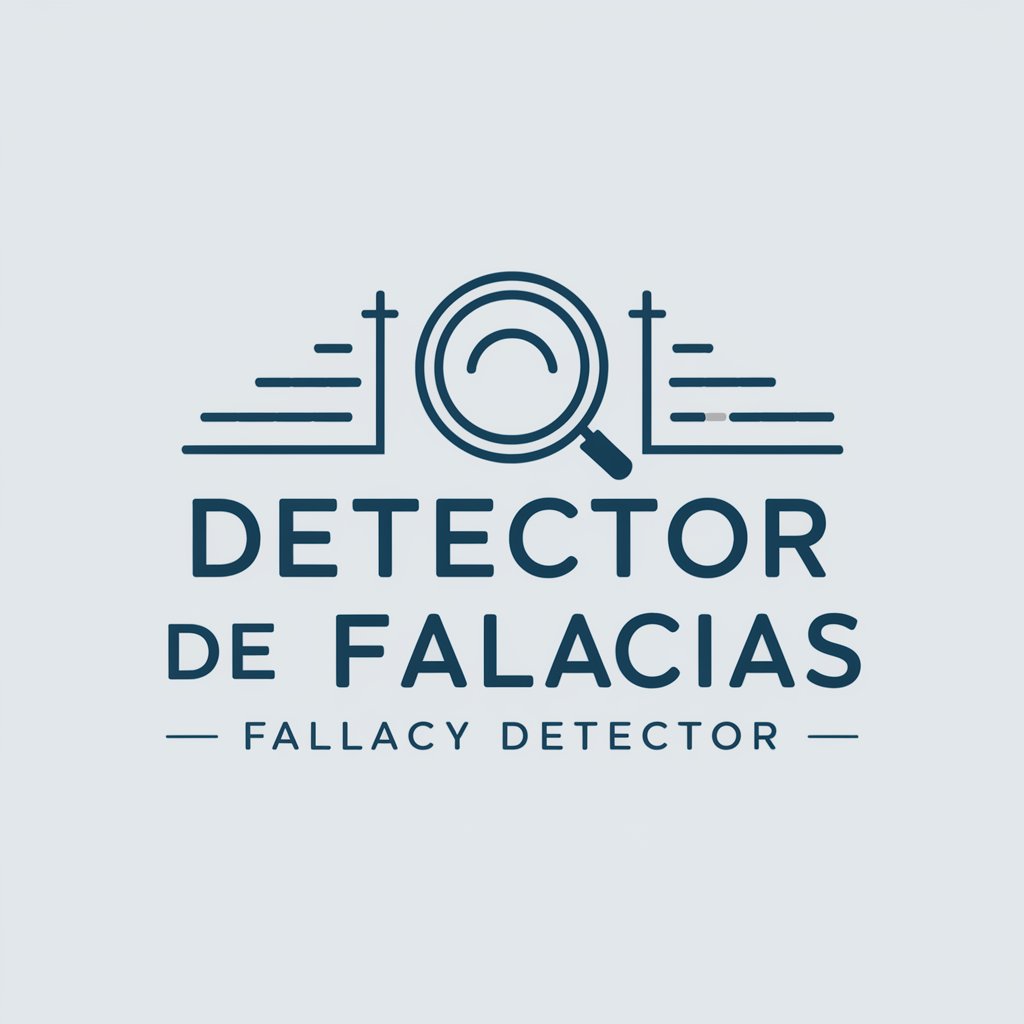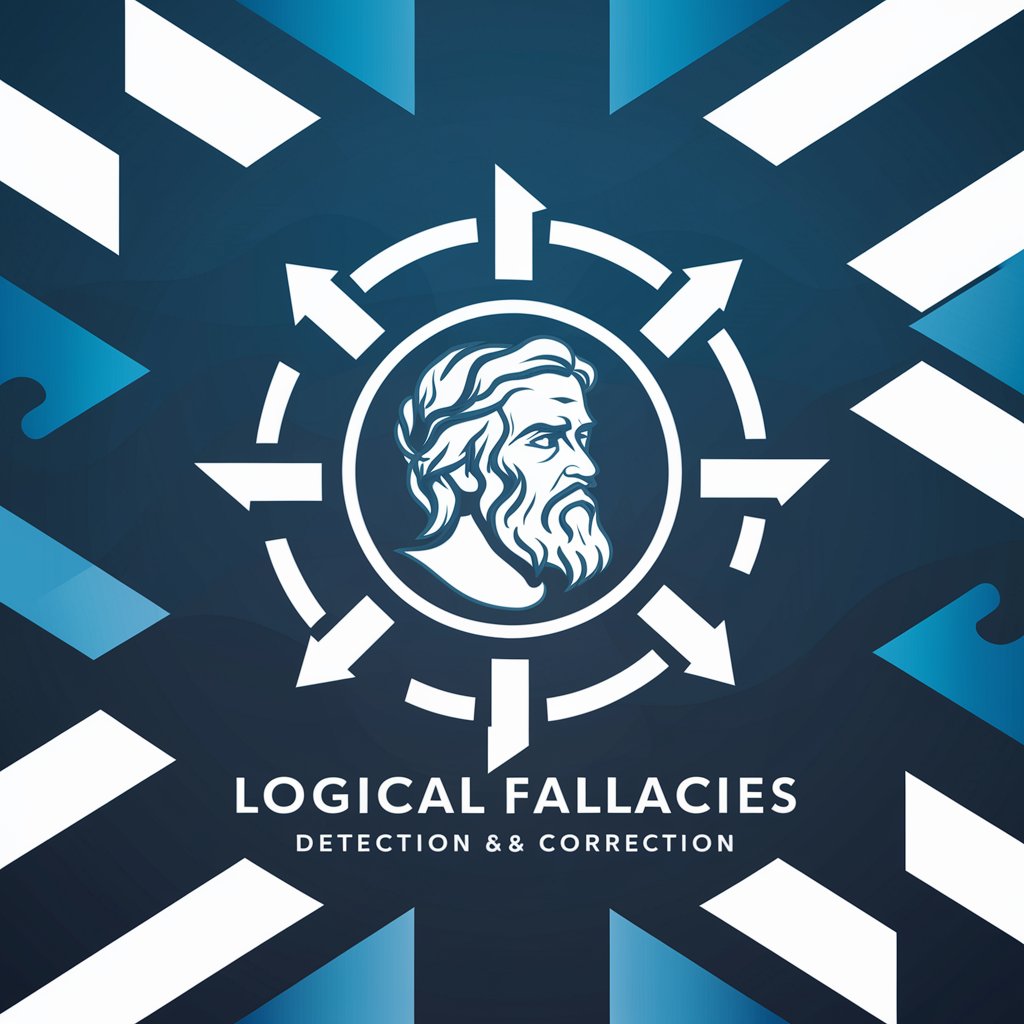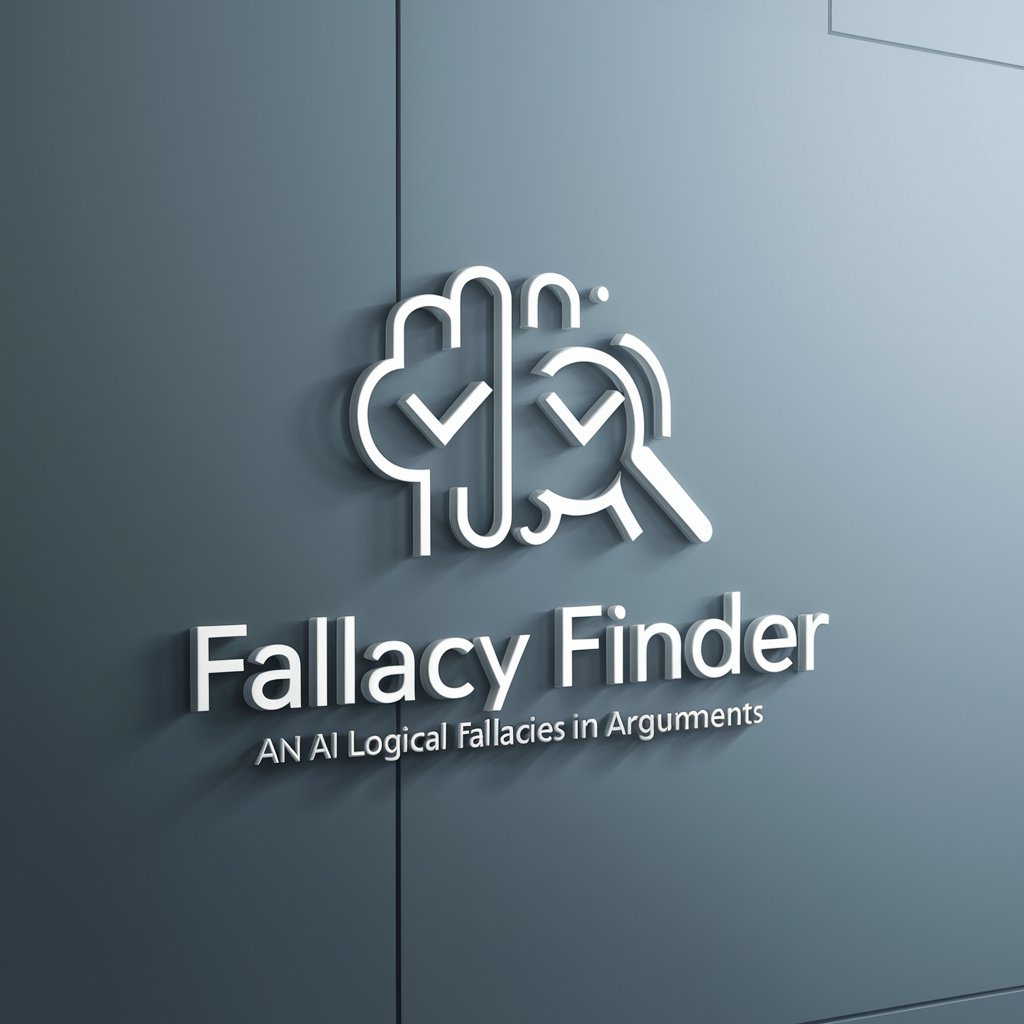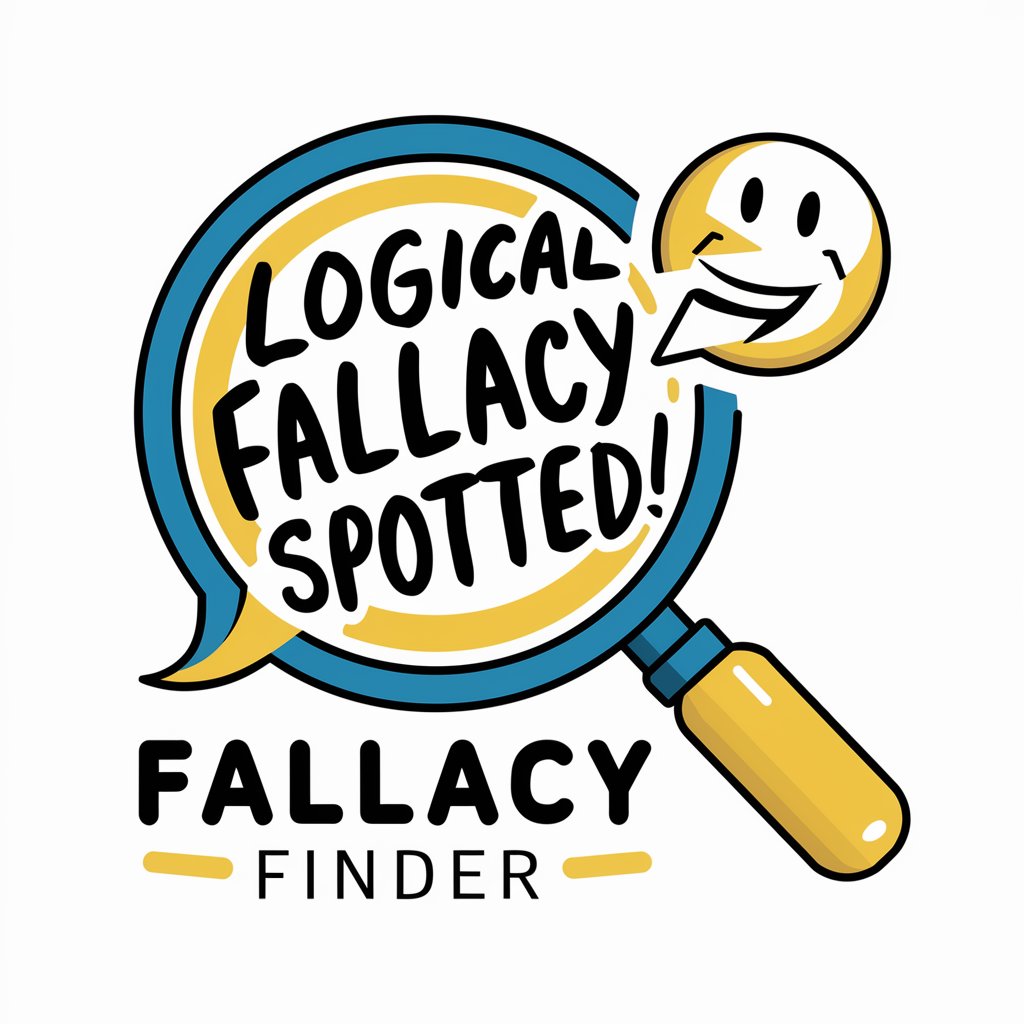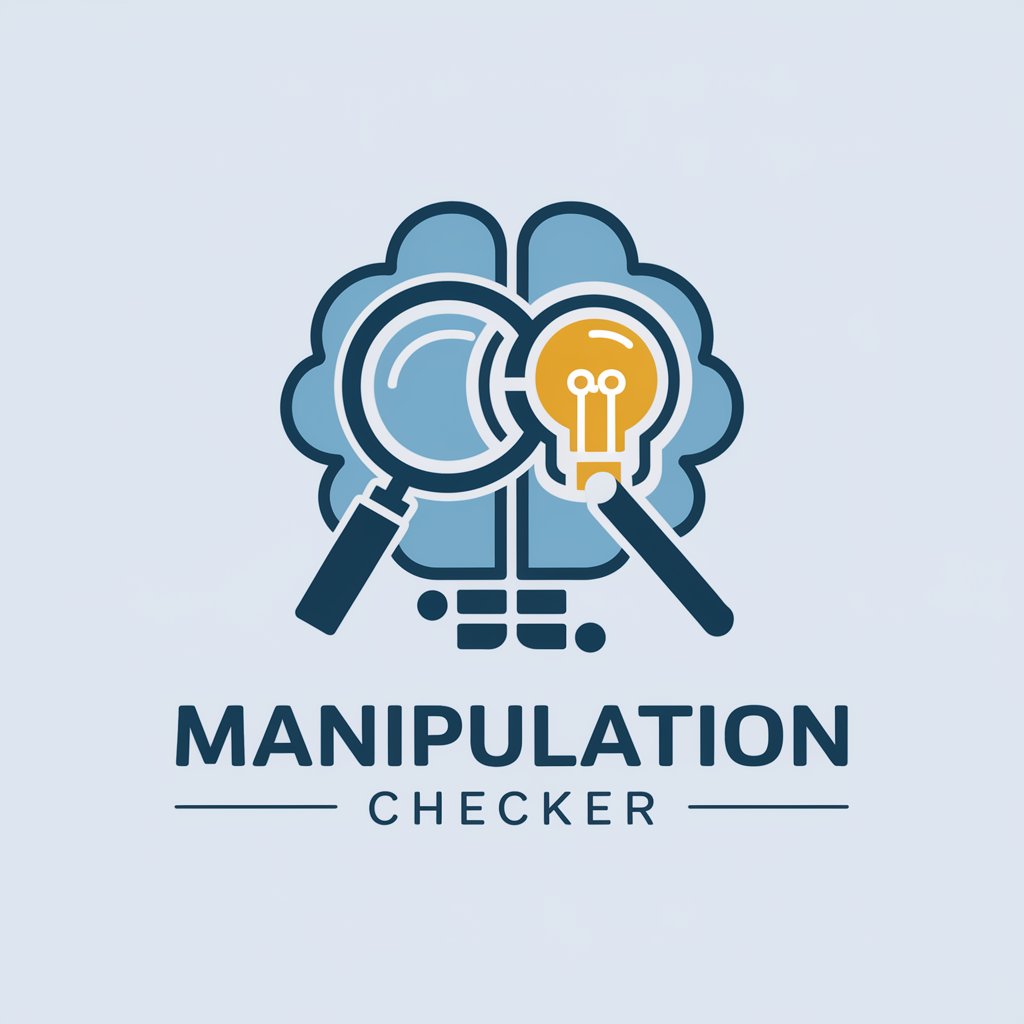
Logical Fallacies Detector - Identify Argument Fallacies
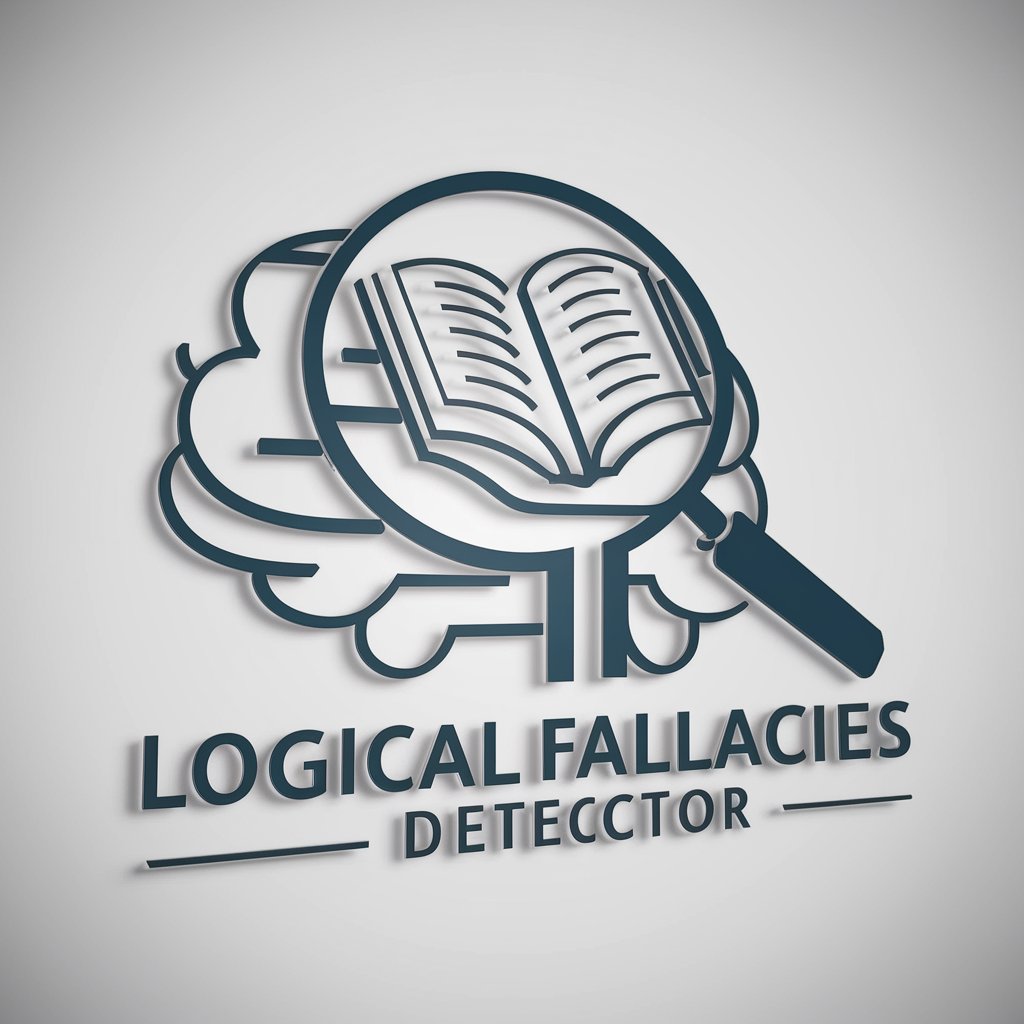
Welcome! Let's identify some logical fallacies together.
Enhancing Reasoning with AI-Powered Analysis
Analyze the following argument for logical fallacies:
Identify any fallacies in this statement and explain them:
Does this text contain any logical fallacies? If so, which ones?
Evaluate the reasoning in this passage for any logical errors:
Get Embed Code
Overview of Logical Fallacies Detector
The Logical Fallacies Detector is a specialized tool designed to identify and analyze logical fallacies within text. Its primary function is to facilitate better understanding and usage of logical reasoning. The tool scans text for common logical fallacies, offering explanations and educational links for each identified fallacy. For example, if a user submits an argument that inaccurately attributes cause and effect, the tool would identify this as a 'False Cause' fallacy and provide a link for further reading (https://yourlogicalfallacyis.com/false-cause). This tool is particularly useful in educational settings, debate analysis, and critical thinking exercises, where precise and rational argumentation is essential. Powered by ChatGPT-4o。

Core Functions of Logical Fallacies Detector
Identification of Logical Fallacies
Example
Detecting an 'Ad Hominem' attack in a debate.
Scenario
In a political debate, one speaker may attack the character of another instead of addressing the argument. The tool flags this as an 'Ad Hominem' fallacy, providing a link for reference (https://yourlogicalfallacyis.com/ad-hominem).
Educational Resource Provision
Example
Providing resources for the 'Strawman' fallacy.
Scenario
When a user misrepresents an argument to make it easier to attack, the tool identifies this as a 'Strawman' fallacy and offers educational resources for deeper understanding (https://yourlogicalfallacyis.com/strawman).
Suggesting Rational Argument Alternatives
Example
Offering alternative arguments in place of 'Appeal to Emotion'.
Scenario
If a user's argument relies heavily on emotional appeal rather than facts, the tool highlights this as an 'Appeal to Emotion' fallacy and suggests more logical, evidence-based arguments (https://yourlogicalfallacyis.com/appeal-to-emotion).
Target User Groups for Logical Fallacies Detector
Educators and Students
Educators can use this tool to teach critical thinking and argumentation skills. Students can learn to recognize and avoid logical fallacies in their own work and in analyzing others' arguments.
Debate and Public Speaking Enthusiasts
Those involved in debates or public speaking can use this tool to refine their arguments, ensuring they are logically sound and free from fallacious reasoning.
Professionals in Law and Politics
Legal and political professionals often engage in argumentation and persuasion. This tool can help them identify fallacies in opposition arguments and strengthen their own rhetorical strategies.

Guidelines for Using Logical Fallacies Detector
Initial Access
Visit yeschat.ai for a free trial without login, also no need for ChatGPT Plus.
Understanding Fallacies
Familiarize yourself with common logical fallacies to better understand the tool's feedback. Resources like 'yourlogicalfallacyis.com' are helpful.
Input Preparation
Prepare a text where you suspect logical fallacies. This could be an argument, a speech, an article, or any form of written discourse.
Analysis
Submit your text to the Logical Fallacies Detector. The tool will analyze the content and identify any logical fallacies present.
Review and Learn
Examine the results and consider the suggested alternatives or stronger arguments to enhance your understanding and reasoning skills.
Try other advanced and practical GPTs
Out of the Box
Spark Ideas, Challenge Assumptions

BRINOTION AI - Digital Built Consultant
Empowering Construction with AI Expertise

NED Bot
Empowering Conversations with AI Precision

添削くん
質の高い文章へ、AIの力で。

StarTalk
Unlocking the Cosmos with AI

Sarcastic Reply
Unleash AI-Powered Sarcasm

GP(en)T(ester)
Empowering Cybersecurity with AI
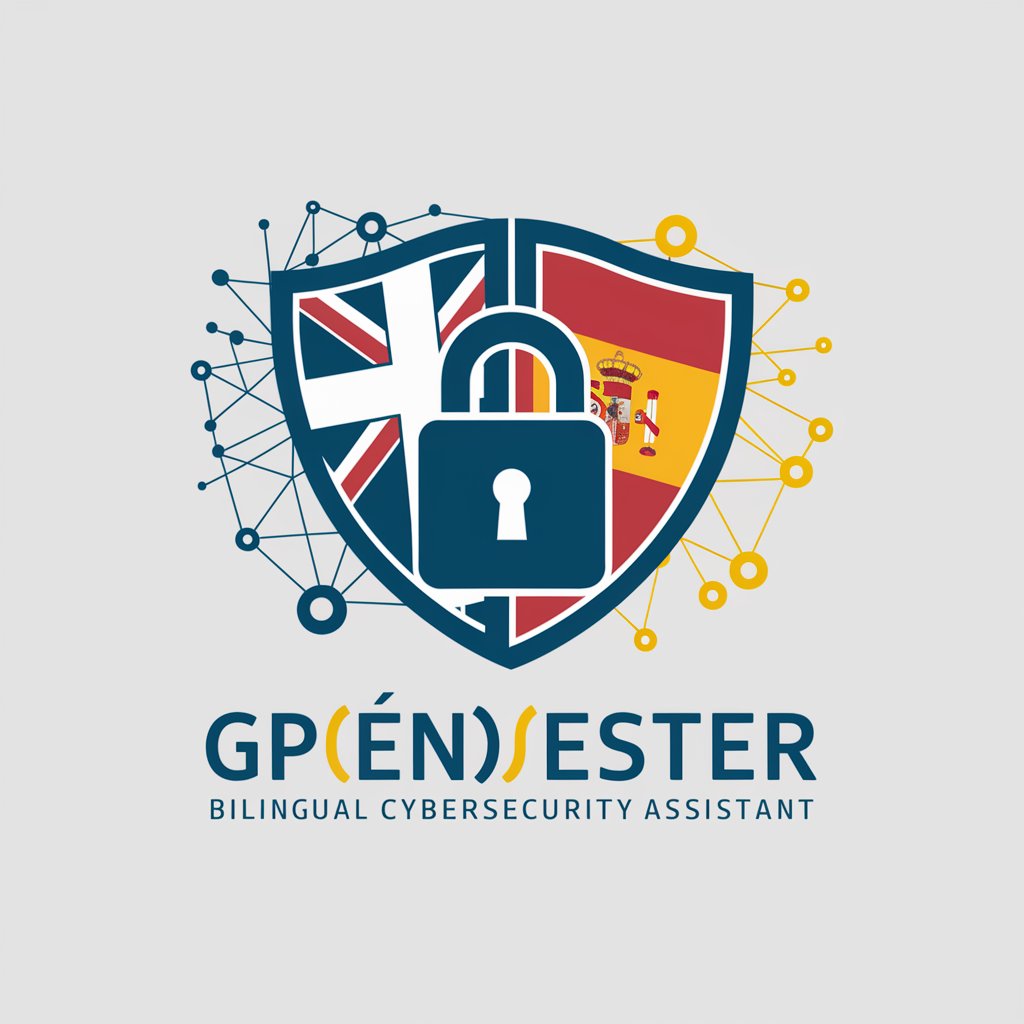
ThePodcastMBA
AI-powered podcast insights for entrepreneurs

提示精灵小富贵(Prompt Pet)
Empowering Creativity with AI Precision

AI塔罗大师
Discover Your Path with AI Wisdom

The Oracle of DelphAI
Cryptic Wisdom, AI-Enhanced

Design Captioner
Elevate your designs with AI-powered captions.

Frequently Asked Questions about Logical Fallacies Detector
What types of texts can Logical Fallacies Detector analyze?
It can analyze a wide range of texts, including academic papers, speeches, debates, and everyday arguments, to identify logical fallacies.
How does this tool help improve argumentation skills?
By identifying logical fallacies, it highlights weaknesses in arguments, allowing users to refine their reasoning and develop stronger, more coherent arguments.
Can Logical Fallacies Detector replace human judgment in argument analysis?
No, it is designed to assist and enhance human judgment, not replace it. Users should critically evaluate the tool's feedback.
Is prior knowledge of logical fallacies necessary to use this tool effectively?
Basic knowledge is beneficial, but the tool provides educational links and suggestions that help users learn and understand logical fallacies.
Can this tool detect all types of logical fallacies?
It is programmed to recognize a wide array of common fallacies, but it may not detect every possible fallacy, especially in complex or nuanced arguments.
